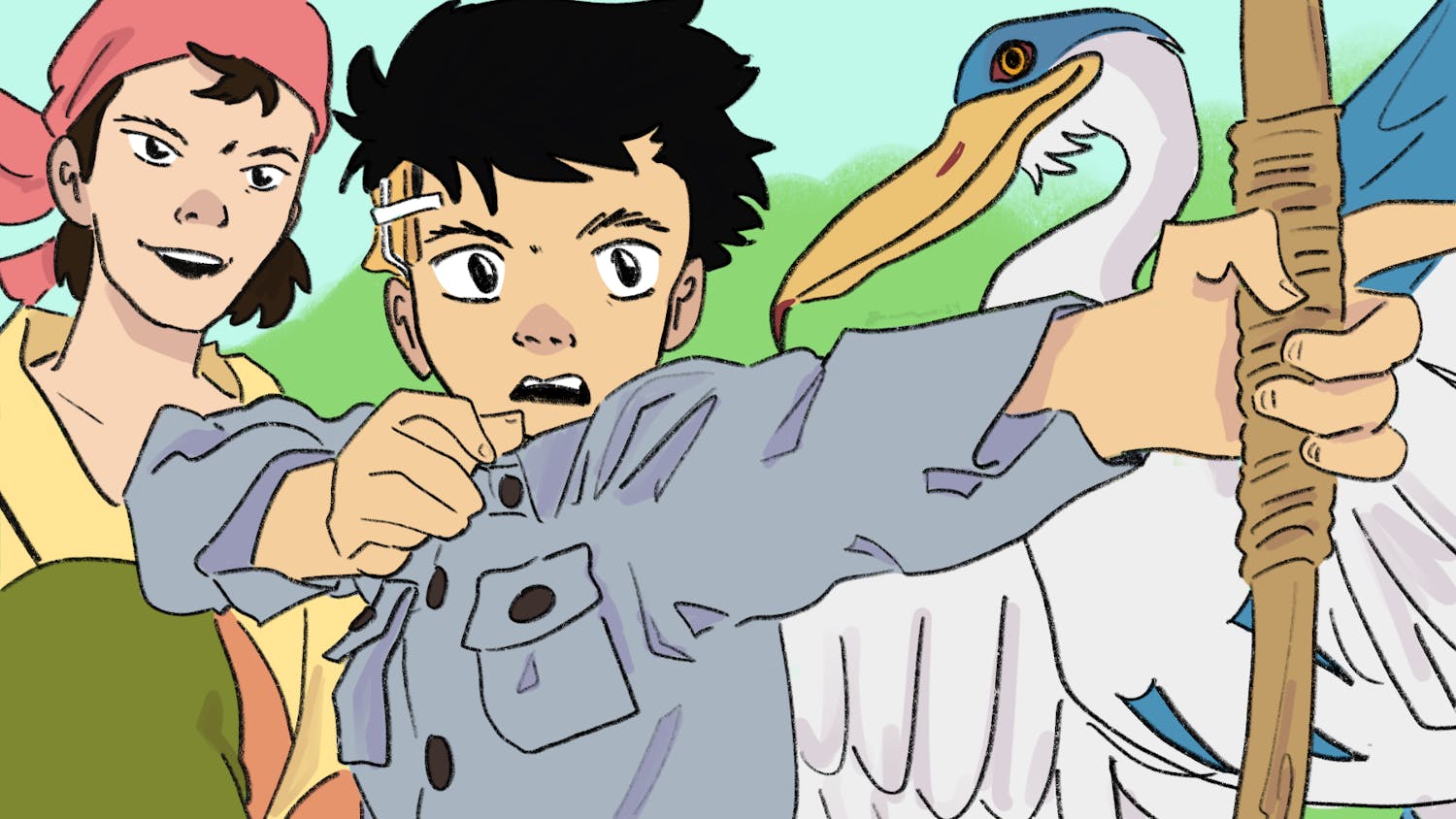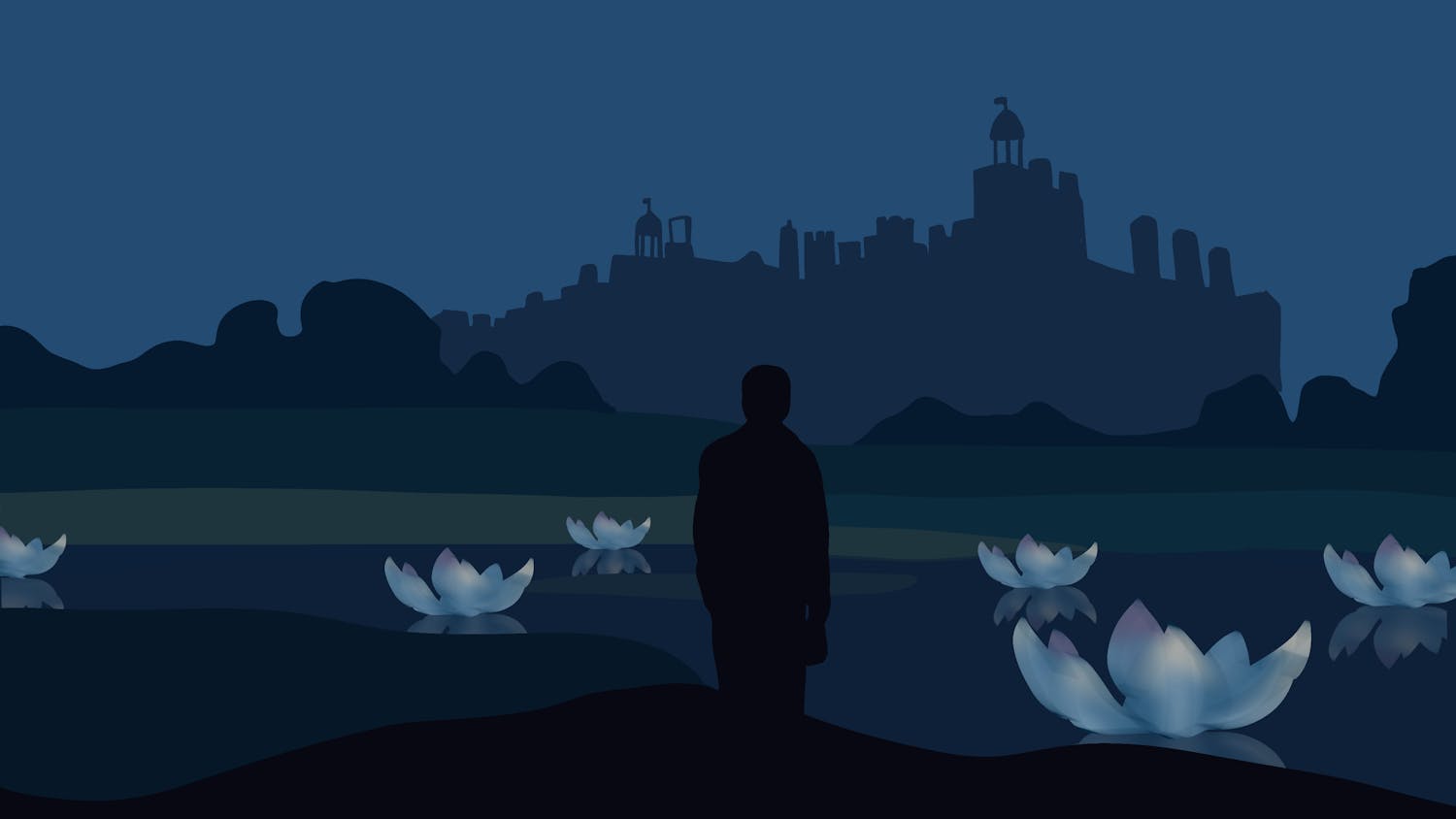I love “Star Wars.” I always have, and I always will. And, like most fans, I was deeply impressed by how well Disney and J.J. Abrams managed to revitalize the franchise with “Star Wars: The Force Awakens,” whose success undeniably built up hype for the saga’s next offering, “Rogue One: A Star Wars Story.” Yet despite the excitement, I had no real anticipation or expectations for the newest film. Nonetheless, as a “Star Wars” fan, I felt an obligation to see it. So I did. The verdict? “Rogue One” was decent.
Put simply, the film is the opening crawl from George Lucas’ original “Star Wars” in movie form. The Rebels learn that the Empire is building the Death Star and decide that the only way they can hope to defeat the weapon is by stealing its architectural plans. So they do just that. “The Force Awakens” worked overtime to appeal to Star Wars fans young and old as well as viewers who just wanted a good time. “Rogue One,” on the other hand, is made purely for those people who are already invested in the Star Wars storyline — which isn’t necessarily a problem, but you’ve been warned.
“Rogue One” has a lot of great scenes and ideas, but when put together the film only manages to yield an adequate product. Anyone who has seen the original “Star Wars” knows exactly how this film will end, but the screenplay still manages to sneak in a few surprises.
In particular, I was impressed by how the writers managed to plug up a few significant plot holes that have been plaguing the franchise since its very conception. The film also introduces various shades of grey previously unseen in a “Star Wars” film.
We realize quickly that the Rebels may be the “good guys,” but they are also cutthroat and deceitful when necessary. This idea is further explored through Forest Whitaker’s character Saw Gerrera, an aged cyborg who needs to inhale some sort of gas through a tube like Frank Booth from “Blue Velvet” to stay alive. Gerrera is a Rebel extremist whose fanatical approach to the Rebellion helps make Whitaker’s scenes the most compelling.
Gerrera notwithstanding, I was disappointed by how little I was engaged by the other characters. All of the actors play their parts well, but they clearly just weren’t given enough material to work with. Jyn Erso (Felicity Jones) and Cassian Andor (Diego Luna) ostensibly serve as the main characters, and there are brief moments where it feels as though they share a deeper connection — a connection which might have resulted in more character depth and growth. It feels as if a subplot about how they learn to trust each other was written but scrapped halfway through filming and hastily excised from the final product, which is really a shame.
My complete lack of investment in the characters may admittedly be more my own personal problem. Traditionally, “Star Wars” has been about the battle between good and evil as told through the history of the Skywalker-Solo family, and at this point I’ve come to care deeply about their story. For me, this is the essential quality that makes even the worst “Star Wars” films engaging. “Rogue One” inherently lacks that quality through no fault of its own, but I won’t deny that this was the reason I really was not looking forward to the film and may have contributed to my overall lukewarm reaction.
On the bright side, the action is confidently filmed and mostly thrilling. The filmmakers promised that “Rogue One” would emphasize the “war” in “Star Wars,” and they certainly delivered with a grittiness that viewers do not see in most space fantasies.
The film also contains what is quite possibly the most exciting scene to ever feature Darth Vader. It’s a moment of total fan service, but, as a fan, I felt serviced. The final, giant dogfight also has some particularly original moments even though it goes on for far too long. The film is helmed by Gareth Edwards, who directed the 2014 rendition of “Godzilla,” and, for better or for worse, “Rogue One” reminds me a great deal of that film. The spectacle is great, and the story allows for some solid moments, but the characters are as flat as cardboard.
From what I can gather, “Rogue One” went through some fairly extensive rewrites and reshoots, and in general, it appears as though the production was rushed. It shows. Surprisingly, this is best exemplified by Michael Giacchino’s score, which also serves as a fitting metaphor for the film as a whole. To be fair, Giacchino was only given four and a half weeks to write it after replacing Alexandre Desplat, and I do love the way he subtly incorporates previous “Star Wars” musical cues without being too obvious.
However, much of the music is incredibly bombastic, which in turn makes it feel rather hollow. Like the film itself, it’s good, but it could have been so much more. Nonetheless, no matter how many sequels or prequels they make, “Star Wars” will always endure. That’s just its power.
Rating: 7/10



